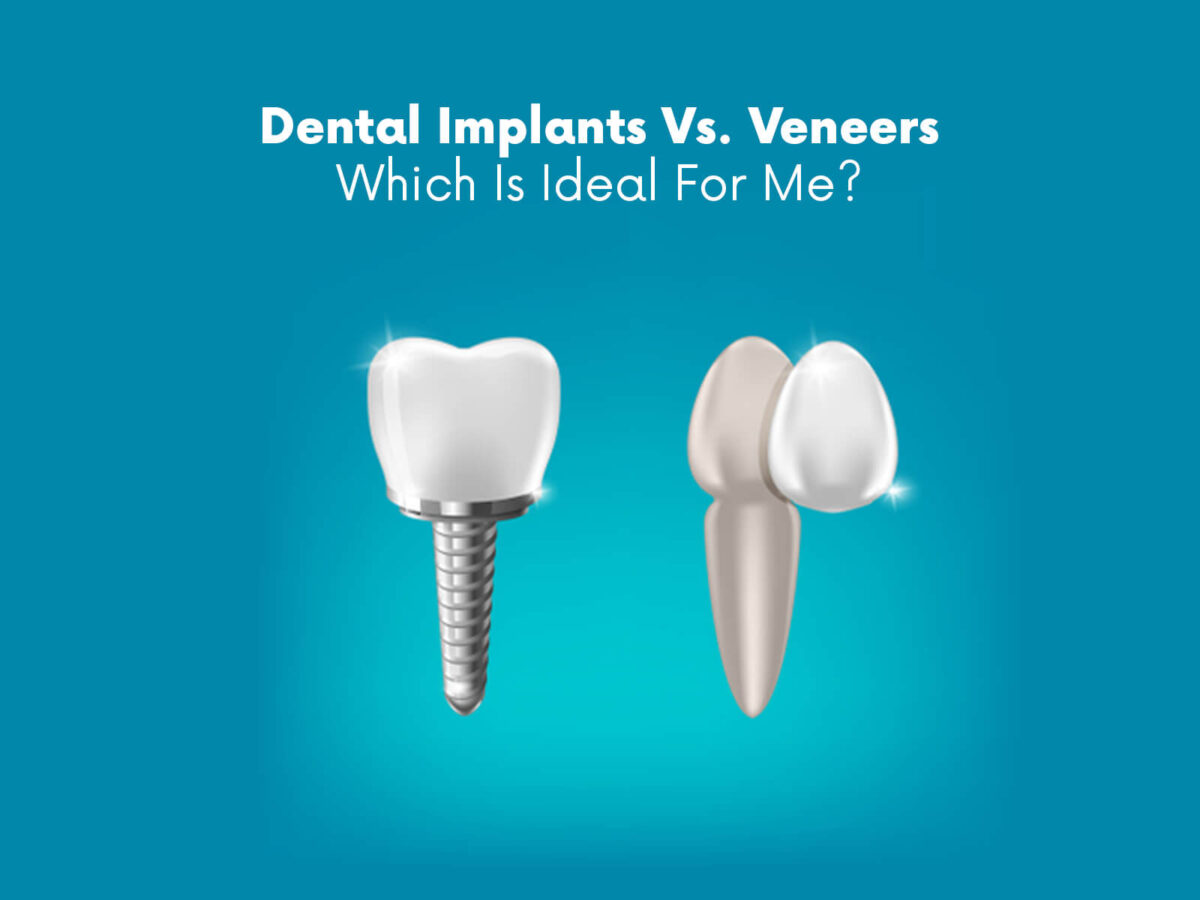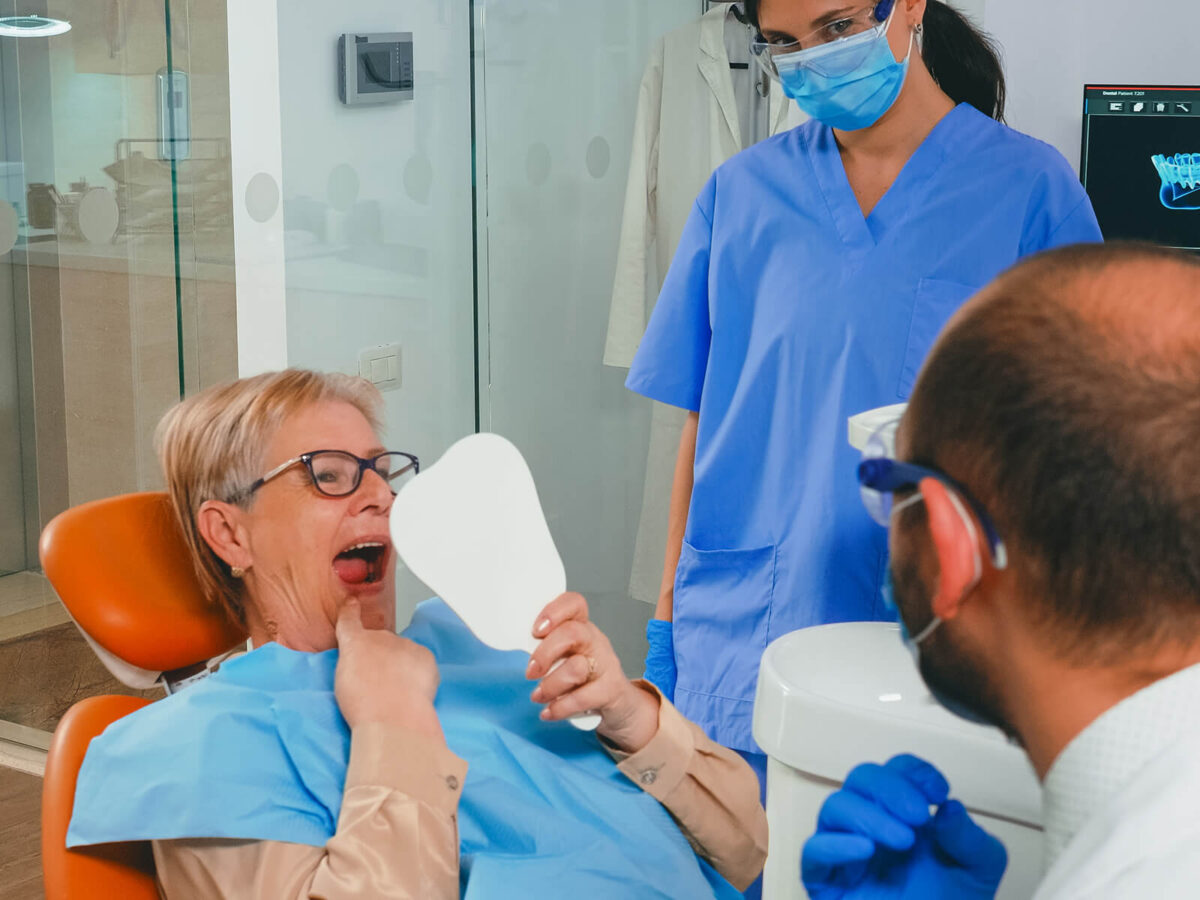When it comes to improving your smile, two popular options stand out: Dental implants and Veneers. These are two types of tooth substitutes that can help solve the problem of tooth shape and alignment. Both are suitable to address specific dental concerns and there are various factors for one to consider before going for either of the two. In this article, we’ll aim to enable you to understand the differences between dental implants and veneers to know which option suits you best when it comes to tooth replacement.
Understanding Dental Implants
What Are Dental Implants?
Dental implants are artificial tooth roots made of titanium that are seeded in the oral cavity to support replacement teeth. These may be fixed or removable. The implant merges with the oral cavity as the bone grows over time and offers the best mechanism for anchoring the crown, bridge, or dentures that are fixed on it.
Advantages of Dental Implants
- Longevity and Durability: Dental implants are meant to be permanent as they have longevity even with rigorous dental care. Titanium screw – bonds with the bone tissue therefore giving a permanent solution for a missing tooth.
- Natural Appearance and Function: Permanent implants appear like normal teeth, giving them a natural appearance. They come in various colors, sizes, and shapes to fit the client’s existing dentition.
- Preservation of Jawbone Health: Unlike other solutions for tooth replacement, implants support the bone since they are implanted in the jawbone, therefore preventing bone deterioration and degradation of the facial structure.
- Improved Oral Health: Unlike bridges where some of the adjacent teeth might have to be ground to support the bridge. Dental implants do not require the trimming of adjacent teeth and this helps in keeping the health of your natural teeth intact.
Understanding Veneers
What Are Veneers?
Veneers are extremely thin, wafer-like enamel-restorative prostheses made from porcelain or resin that are added to the anterior part of the teeth for esthetic purposes only.
Advantages of Veneers
- Aesthetic Enhancement: Veneers offer a quick and effective way to improve the appearance of your smile. They can dramatically enhance the color, shape, and alignment of your teeth
- Minimally Invasive Procedure: The process of getting veneers is less invasive than dental implants. It typically involves minimal tooth preparation and can often be completed in just a few visits
- Stain Resistance: Porcelain veneers are highly resistant to staining, making them an excellent choice for those seeking a long-lasting, bright smile
- Quick Results: Veneers can provide immediate aesthetic improvements, making them ideal for individuals looking to enhance their smile in a short period
Choosing the Right Option for You
Consider Your Dental Needs
- Missing Teeth: If you have one or more missing teeth, dental implants are the superior choice. They provide a permanent solution that restores both the function and appearance of your teeth
- Cosmetic Enhancements: For those looking to correct minor imperfections such as discoloration, chips, or gaps, veneers are an excellent option. They offer a quick and effective way to achieve a flawless smile.
Evaluate Your Oral Health
- Bone Density: Dental implants require sufficient jawbone density for successful placement. If you have experienced bone loss, you may need a bone graft before implant surgery.
- Tooth Integrity: Veneers require the removal of a small amount of enamel from the front of your teeth. If your teeth are already weakened or compromised, this may not be the best option.
Consider Long-Term Goals
- Durability: Dental implants are a long-lasting solution that can endure for decades. If you are looking for a permanent tooth replacement option, implants are the way to go.
- Maintenance: Veneers, while durable, may need to be replaced every 10-15 years. They also require good oral hygiene practices to maintain their appearance and longevity.
Conclusion
Both dental implants and veneers offer unique benefits that cater to different dental needs and goals. Understanding the differences and evaluating your specific situation can help you make an informed decision. For those with missing teeth and seeking a permanent solution, dental implants are the ideal choice. For individuals looking to enhance the aesthetics of their smile, veneers provide a quick and effective option. Consult with your dentist to discuss your oral health, aesthetic goals, and preferences. By working together, you can determine whether dental implants or veneers best fit your tooth replacement needs.




